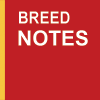German dog shows under threat
|
Issue: 06/05/2022
Dachshunds, Samoyeds and Poodles amongst 41 breeds listed
Exhibitors have claimed that new regulations introduced in Germany could lead to the country becoming 'dog free' and dog shows becoming extinct, due to draconian veterinary requirements necessary before you can enter a dog show.
All this has come about because of a new set of laws embodied in the 'Animal Welfare Ordinance' (Tierschutzhundeverodnung) which came into force at the start of 2022 and it has tightened the rules for dog breeding and made it more difficult for exhibitors to show their dogs.
The regulation, which was delayed by Covid, was initiated by Julia Klöckner, when she was the minister at the Federal Minister of Food and Agriculture. She has been reported as saying that 'animals are not there to meet the questionable aesthetic wishes of their owners.'
The Neumünster dog show in June has already been cancelled due to the new rules.
In a statement the show organisers said, 'The VDH LV Nord is unfortunately compelled to cancel the international dog shows in Neumünster on 05/06 June 2022 due the new German Animal Protection Dog Ordinance (Tierschutz-Hundeverordnung) since 01.01.2022). You might have realised within the last few weeks the discussions on social media concerning the ban on showing dogs that exhibit torture breeding characteristics.
'The German Kennel Club VDH is still in discussion with the Federal Ministry of Food and Agriculture (BMEL) and the responsible authorities on how to implement this requirement for the shows. Unfortunately, this will be too late for us.
'Therefore, we have decided to cancel the show. We will refund the entry fee. Please give us a little bit of time. We ask for your understanding and support. We are all aware of the difficulties, sacrifices and consequences related to our decision.
'We are very sad having to cancel our beloved show and hope that we will meet again.'
In Germany, different regions are applying different rules.
For the CACIB show in Erfurt, one online post said, 'This show tops it all. Dogs cannot be kept in show boxes inside the hall, as they are already too much crated during transport! Definitely the end of the shows.'
The regional variations are causing much confusion and consternation it seems.
Other social media posts included: 'It's a disaster! They definitely want to stop shows. Won't be surprised if next step will be breeding of purebred dogs. And nothing of this applies to doodle mutts.'
Another said, 'all of this has nothing to do with the health of dogs, if so are mongrels not dogs?
'They too have health issues that go quietly ignored? Or puppy farms, they too are ignored, this has got totally out of control! 'Are we prepared? Is the FCI ready to protect us?'
CROPPED AND DOCKED
The Ordinance bans the exhibiting of dogs, stating, '1. in which parts of the body, in particular ears or tail, have been completely or partially amputated in a manner contrary to the protection of the animal, or
'2. in which for hereditary reasons
'a) body parts or organs are missing or unsuitable for the proper use of the species or have been altered, resulting in pain, suffering or damage,
b) behavioural disorders associated with suffering occur,
c) any species-appropriate contact with conspecifics causes them or a conspecific pain or avoidable suffering or harm; or
d) the keeping is only possible with pain or avoidable suffering or leads to harm.
'The organizer and exhibitor shall be responsible for compliance with the requirements of the Ordinance. The veterinary office will pay particular attention to compliance with the Animal Welfare Dog Ordinance; violations may be punished with fines.'
EXAMINATION
As a result of this, 'Every dog entered for a show must undergo a general veterinary examination to identify any indications of hereditary disease in advance and the following form must be used to certify that the dog has no visible indications of 'Torture Breeding' (Qualzucht).'
For a large number of breeds, in addition to the general veterinary examination for visible indications of hereditary disease, they will also have to be inspected for hidden indications in advance of the show.
Those breeds are: American Cocker Spaniel, Australian Kelpie, Basset Hound, Boston Terrier, Bouvier des Flandres, Boxer, Cao de Agua Portugues, Cavalier-King Charles Spaniel*, Chihuahua*, Chinese Crested Dog, Chow-Chow, Coton de Tuléar, Dandie Dinmont Terrier, Great Dane, German Pinscher, Dobermann, English Bulldog, English Springer Spaniel, Entlebucher Mountain Dog, Flat Coated Retriever, French Bulldog, Dutch Shepherd Dog (rough-coated), Irish Wolfhound, Japanese Chin, Leonberger, Magyar Viszla, Miniature Bull Terrier, Pug, Pekingese, Polski Owczarek Podhalanski, Poodle, Saarloos Wolfhound, Samoyed, Siberian Husky, Staffordshire Bull Terrier, Dachshund, Czechoslovakian Wolfhound, Welsh Springer Spaniel, Yorkshire Terrier*, Miniature Poodle* and the Miniature Schnauzer*.
The asterisk denotes, 'In the presence of corresponding clinical symptoms in the general examination.'
In addition, 'Dogs whose vibrissae have been shortened or removed cannot participate in the show.
'Dogs which are found to have indications of 'Torture breeding' during the show must leave the ring without being judged.
'The breed judges will implement the Breed Specific Instructions and pay particular attention to health and functionality in the breeds listed therein. The breeds listed in the BSI have been selected on the basis of the estimated risk of health-endangering exaggeration of breed characteristics and possible misleading interpretation of the standard.'
DISASTER
The Deutscher Club für Leonberger Hunde (DCLH) told OUR DOGS that the rules were, 'a disaster for the breed.'
Breeding manager, Natalie Mayer, who is also a vet, said, 'The main problem is, that each local veterinary office makes its own rules. Sometimes the Leos are listed, sometimes not. The facts if a dog has to be listed or not is based on 20 years old studies.
'The Leo is mainly on the list cause of the suspected defects of the lig, pectinatum. Even the DOK, our local eye committee, don't know the genetics for sure or which grades are to exclude. I would not have a problem to ask eyes for breeding to have some statistics but not only to have the permission to show.'
She alleged that, 'The federal government is pushed by PETA, who wants to stop all shows .... all pure breed dogs are ill in their opinion. As a veterinary I see the opposite each day at work.
'As DCLH we must see how to handle it, the VDH engaged lawyers to fight against it.'
The German Kennel Club, the VDH, said in a statement, 'In Germany, animal protection policies are currently changing at a rapid pace. In particular, non-commercial organised dog breeding is massively affected by the practical implementation of laws and regulations in contrast to those who secretly and unrecognised breed dogs under the most undignified conditions. The situation changes almost daily.
'By the end of May 2022 at the latest, the German Kennel Club would like to give a first insight into what can be seen as positive and what is counterproductive and inform about the activities with which it is reacting and what a reasonable perspective for the future could look like. Before then, this is not possible in view of the still unclear and downright confusing situation.
'The situation remains unclear on the question of shows because every local state veterinarian decides about the practical questions of a theoretically oriented law at the moment.'
Sarah Boyd, Manager Public Affairs Club für Britische Hütehunde (CfBrH) (Club for British Shepherd Dogs), 'We are at a crossroads for quality dog breeding in Germany.
'Like the Kennel Club in the UK, German dog breeders who value health, looks/standards and temperament in their dogs and breeding programs, are working under the regulations of the VDH.
'The VDH organises regular dog shows for the general public to inform and enjoy, for breeders to show and for judges to select the best breeding material.
'Now all of them are under heavy attack from several local veterinarians and some organisations like PETA etc.
'All of a sudden it is assumed that all purebred dogs carry and show hereditary traits that make them suffer. Therefore, many very old breeds are completely banned from entering and attend any show at all.
'The remaining breeds are allowed to participate only if they are put through multiple, often unnecessary and ill-advised testing including anaesthetics.
'As responsible breeders and judges we will not and cannot accept to put any dog's health at risk! Collie Rough and Smooth have to prove to be clinically free from epilepsy, Bobtails have to prove that they do have a tail by being x-rayed - and all Welsh Corgis are banned altogether because of their short legs and the bobtail and the Merle pattern.
'First dog shows have already been cancelled. Therefore, the CfBrH (Club für Britische Hütehunde), has launched a petition. This petition is supported by many thousands of dog breeders, judges and dog owners all across Germany.
'We want to keep dog shows and quality breeding alive and all our breeders put up an incredible fight. Yet we do need support wherever we can get it!
'Otherwise, we will end up seeing less quality purebred dogs and more and more dogs bred without a VDH pedigree, puppies born and raised in environments we consider unhealthy and dangerous. There will be a lot of suffering…which we are determined to prevent by all means!'
KC response
The Kennel Club has issued the following statement: 'We are aware of the German Animal Protection Dog Ordinance laid down in January that prevents the showing of dogs that exhibit 'torture breeding' characteristics, which generally includes any dogs carrying hereditary defects or displaying other health issues that can be detected from a general visual examination. The legislation raises many questions and concerns and we are in discussions to gain a greater understanding about the impact it will have on different breeds and their eligibility to be shown in Germany, and how it is being interpreted, applied and responded to - including how the wide range breeds that have been selected as requiring further detailed examinations, have been selected.
'Dog shows have an important role to play in ensuring that winning dogs are good visual examples of their breed, in order to drive and encourage responsible breeding choices, and many measures have been put in place to this end, in the UK and overseas. However, blanket legislation such as this, aimed exclusively at the tiny minority of dogs who show, many of whom will never be bred from but who may still be required to undergo detailed invasive examinations, will not improve the health of the general dog population and may in fact be counterproductive. Many reputable breeders may be driven away from breeding and their hobby of showing, because of concerns about how ambiguous legislation can be consistently and fairly applied, particularly when local county vets are being asked to assess certain hereditary conditions from a visual examination. This will leave those are breeding unscrupulously, who will never enter a dog show and who operate under the radar of regulation, to fulfil the ever-growing demand for puppies.'
OUR DOGS contacted the Federal Ministry for Food and Agriculture but did not receive a reply before we went to press.
We also asked the FCI for a comment but nothing was received at the time of going to press.
OUR DOGS sympathises with their VDH's predicament; however, it remains to be seen whether yet again that those in power in the world of dogs at large have left it too late to influence this situation now the rules are in fact law in Germany.
There have been calls for a more professional approach to lobbying governments on an international basis and making the case for pedigree dogs and responsible breeders who are (yet again) the ones to be targeted whilst puppy farmers and irresponsible owners simply ignore any such rules.
The fear amongst many exhibitors is that their beloved hobby is under attack from activists who seem to have gained huge amounts of ground and that no country is safe from their views which appear to be accepted by lawmakers and politicians.
Action is needed right now before these laws are replicated elsewhere and shows die a slow death!
VDH STATEMENT
Our Dogs has received the following statement from the VDH in Germany:
'In Germany, animal protection policies are currently changing at a rapid pace. In particular, non-commercial organised dog breeding is massively affected by the practical implementation of laws and regulations in contrast to those who secretly and unrecognised breed dogs under the most undignified conditions. The situation changes almost daily. By the end of May 2022 at the latest, the German Kennel Club would like to give a first insight into what can be seen as positive and what is counterproductive and inform about the activities with which it is reacting and what a reasonable perspective for the future could look like. Before then, this is not possible in view of the still unclear and downright confusing situation.
'The situation remains unclear on the question of shows because every local state veterinarian decides about the practical questions of a theoretically oriented law at the moment.'
A judge's view… and some harsh realities perhaps?

The pedigree dog world is definitely under attack, to a big degree unfortunately justified, in my opinion.
The decisions against us are being taken by the politicians and the law makers. But they don't decide on their own. Somebody has advised and persuaded them to act and decide the way they do. So, it becomes obvious that the pedigree dog world has somehow failed to get its 'message' through or has not tried enough, or there is a problem with the message.
The main reason for this failure in my opinion is our 'message'. In other words, we do not have a 'product' of specific enough quality to promote and protect.
To explain: during their whole existence National Kennel Clubs register pedigree puppies coming from all kind of sources: selectively bred from ethical breeders, together with randomly bred without any quality standard, coming from backyard producers or puppy farmers or imports from puppy farmers. This 'registration practice' happens for the simple, but sad, reason that Kennel Clubs need to survive, to remain financially viable.
Puppies from selective breeders represent maybe 10%-20% (a personal estimation) of the annual puppy registrations. Is this percentage enough to financially support Kennel Clubs? No. So, does the organised pedigree dog world (Kennel Clubs) have a 'product' with specific quality standards to protect and promote? No. Do we also have statistics that we can rely upon to prove that our 'product' is a quality one and the attack is unjustified? Also, not. Even if we had, would it be to our benefit at the moment to present? I doubt it.
Even worse, we have another big enemy: the thousands of puppies, commercially mass produced, unregistered without pedigrees, but phenotypically belonging to a breed (usually commercial), with naturally many health and/or behavioural problems, in the eyes of the general public, the animal welfare activists and the politicians represent pedigree dogs. A big mistake that needs to be clearly and loudly corrected as soon as possible!
So, how can we protect and promote a 'product' that does not have specific quality standards? Or one that is confused with another, bad quality one?
In two ways, a short term and a long term:
The short term is the immediate hiring by FCI and/or major Kennel Clubs of top professional lobbyists / advertising experts to find ways to promote our 'product' as a quality one. Even if it's not completely so, there is no time to lose or to correct it now. We need to protect and promote what we have now, in the best possible way.
The long-term way is to:
a) significantly improve the quality of our 'product' and b) differentiate it from all 'imitations' (the non-pedigree puppies) and then prove the difference by official statistics.
This way, after maybe a decade or two, we will have pedigree dog breeds of such mental and physical health that won't be easily doubted or attacked. This long-term way will be a long and difficult one, requiring brave changes over time. I have specific proposals, but it is not the moment for that.
I, together with the majority of the pedigree dog world (I like to believe), look forward, not only to the short-term solutions, but to a long-term brighter future for the millions of pedigree dogs and the millions of people that will connect their lives in the future.
George Kostopoulos - FCI All Breed Judge














